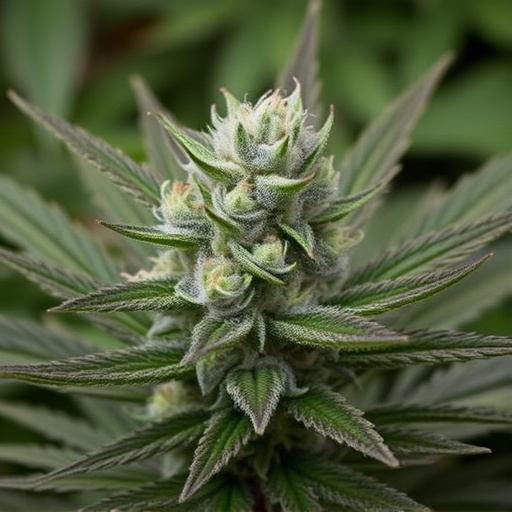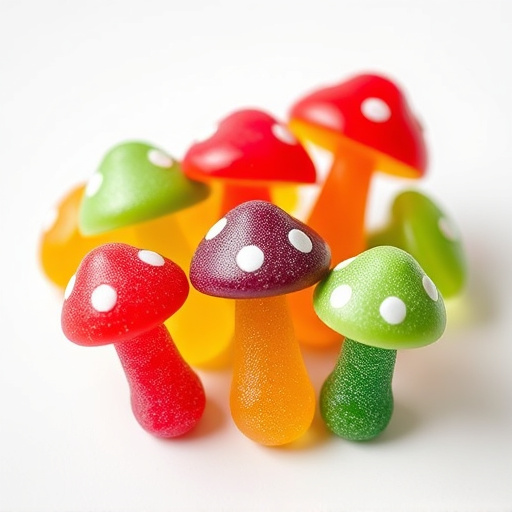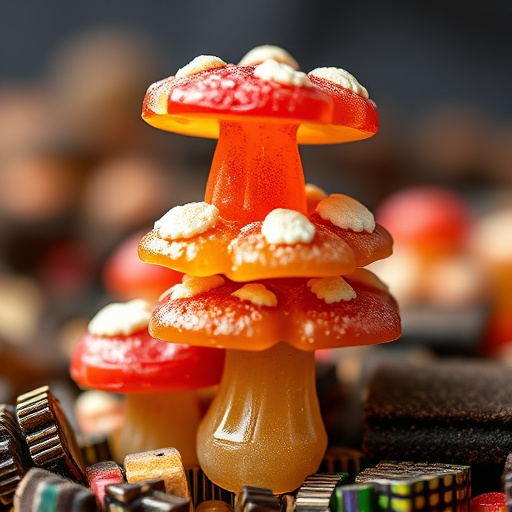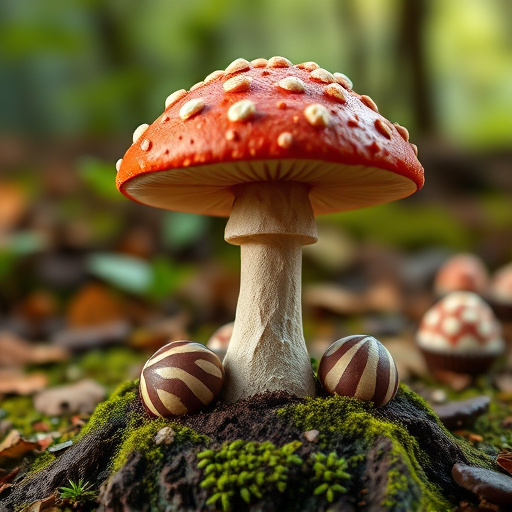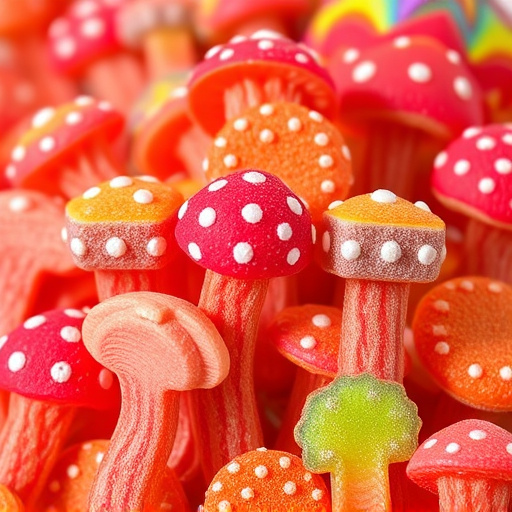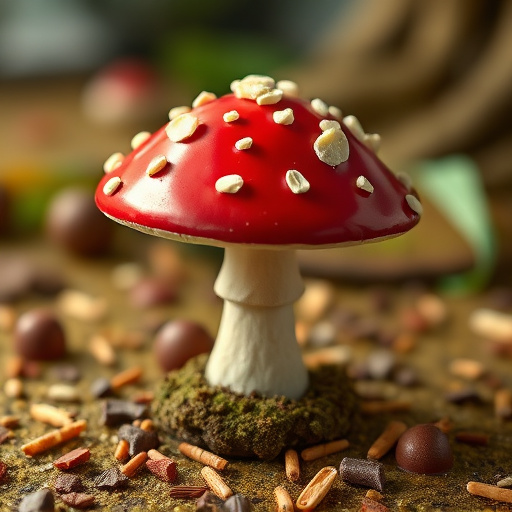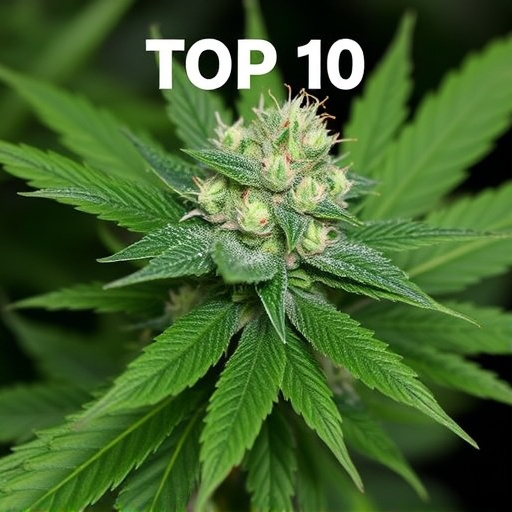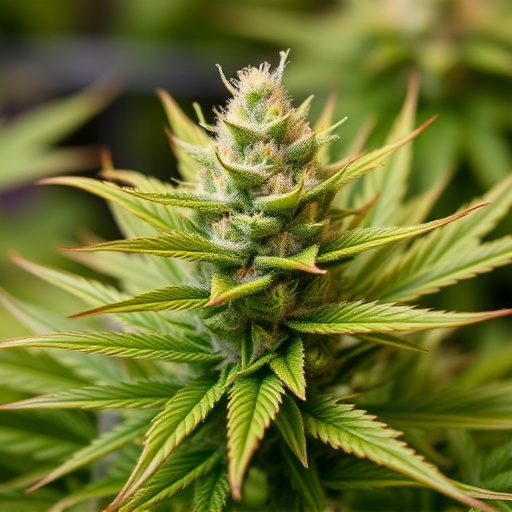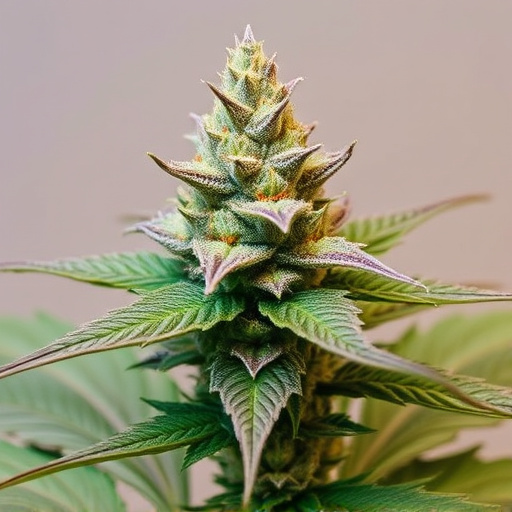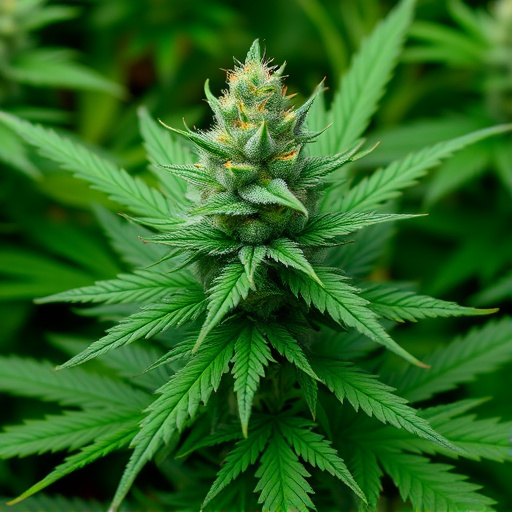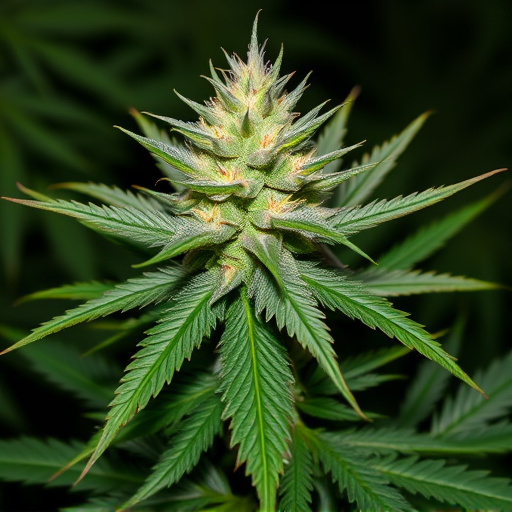Cannabis flower contains over 100 cannabinoids, including THC and CBD, which interact with the body's endocannabinoid system to regulate mood, memory, pain, and appetite. New cannabis strains are bred with specific therapeutic goals in mind, offering tailored solutions for anxiety, depression, PTSD, and other mental health conditions. Scientific research is advancing rapidly, focusing on these unique chemical profiles, and developers are creating new strains with maximum therapeutic benefits and minimal side effects. This natural approach has the potential to revolutionize mental healthcare by complementing conventional treatments and providing holistic options.
Can cannabis flower be a game-changer in mental health support? This natural compound, with its diverse chemical composition, has sparked interest in the medical community for its potential therapeutic effects. This article explores how understanding cannabis flower and its emerging new cannabis strains can offer novel approaches to treating mental health conditions. From anxiety and depression to PTSD, scientific research is shedding light on the benefits of cannabis-assisted therapy, paving the way for a greener future in mental healthcare.
- Understanding Cannabis Flower and its Chemical Composition
- Exploring the Potential Mental Health Benefits of New Cannabis Strains
- Scientific Research and Future Prospects in Cannabis-Assisted Therapy
Understanding Cannabis Flower and its Chemical Composition
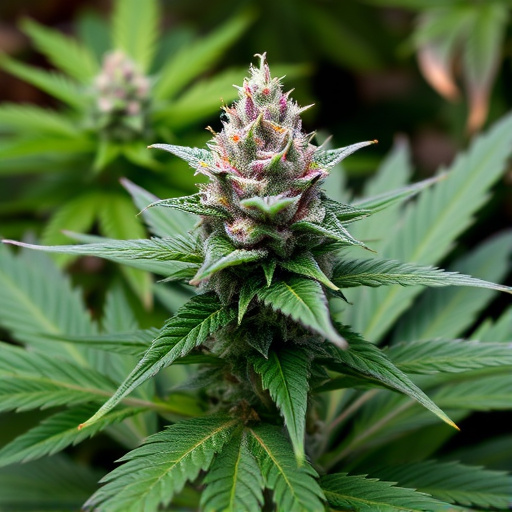
Cannabis flower, also known as marijuana, is a complex plant with a rich history of use for medicinal and recreational purposes. The key to its potential mental health benefits lies in its chemical composition. Cannabis contains over 100 cannabinoids, with two primary ones being THC (tetrahydrocannabinol) and CBD (cannabidiol). Each cannabinoid interacts with the body’s endocannabinoid system, which plays a significant role in regulating mood, memory, pain, and appetite.
New cannabis strains have been developed over time, offering a wide range of cannabinoid profiles that cater to different user needs. While THC is known for its psychoactive effects, inducing feelings of euphoria and relaxation, CBD lacks these properties yet exhibits promising therapeutic effects. Research suggests that the interaction between THC and CBD may enhance each other’s benefits, creating potent combinations for addressing mental health conditions such as anxiety, depression, and PTSD. Understanding the chemistry behind cannabis flower is crucial in navigating its potential as a complementary tool for managing mental well-being.
Exploring the Potential Mental Health Benefits of New Cannabis Strains
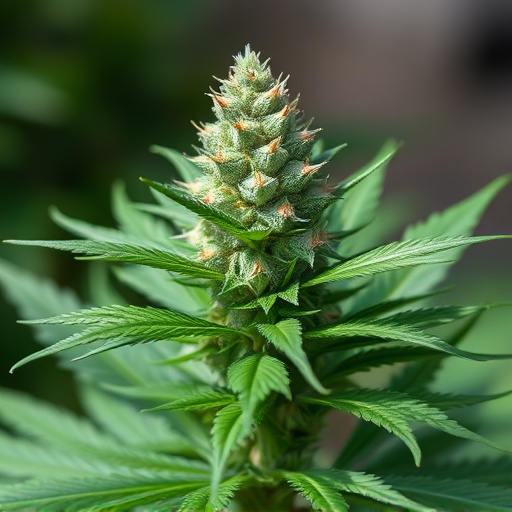
The world of cannabis is constantly evolving, with new strains emerging that offer unique profiles of cannabinoids and terpenes. This presents an exciting opportunity to explore their potential mental health benefits. Researchers are turning their attention to these novel varieties, which may provide novel solutions for various psychological conditions.
Many new cannabis strains are bred with specific therapeutic applications in mind. For example, some strains are high in CBD (cannabidiol), a non-intoxicating compound known for its anti-anxiety and anti-inflammatory properties. Others may have elevated levels of THC (tetrahydrocannabinol), the primary psychoactive component, but with a balance that promotes creativity and mood elevation without overwhelming effects. These tailored formulations could offer improved mental health support, catering to individual needs and preferences.
Scientific Research and Future Prospects in Cannabis-Assisted Therapy
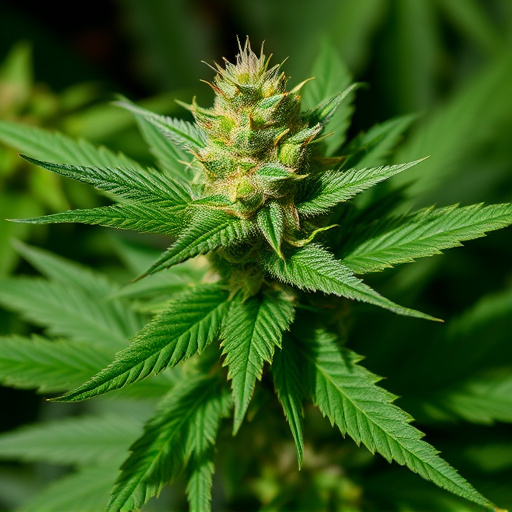
Scientific research into the potential therapeutic benefits of cannabis continues to evolve, with a growing body of evidence suggesting its promise in treating various mental health conditions. Studies have explored the use of different cannabis strains, focusing on their unique chemical compositions, particularly the levels of THC (tetrahydrocannabinol) and CBD (cannabidiol), to offer targeted treatments for depression, anxiety, PTSD, and other disorders. Early findings indicate that specific cannabinoids interact with our endocannabinoid system, influencing mood, memory, and fear responses, thereby presenting a compelling case for cannabis-assisted therapy.
The future of cannabis-based interventions looks promising, with researchers exploring novel new cannabis strains designed to maximize therapeutic benefits while minimizing adverse effects. As understanding deepens, so does the potential to integrate these natural compounds into conventional psychiatric treatments, offering patients more holistic options. This evolving landscape suggests that cannabis could revolutionize mental health care, providing effective relief for those seeking alternative or complementary approaches.
While scientific research continues to explore the potential benefits of cannabis flower for mental health, particularly with emerging new cannabis strains, it’s clear that more work is needed. The current evidence suggests that specific cannabinoids present in these plants may offer promise for treating conditions like anxiety and depression. However, further studies are required to fully understand their efficacy, safety, and optimal application. As the legal landscape surrounding cannabis continues to evolve, ongoing research into new cannabis strains and their therapeutic potential will be crucial for advancing cannabis-assisted therapy as a viable treatment option for mental health concerns.

